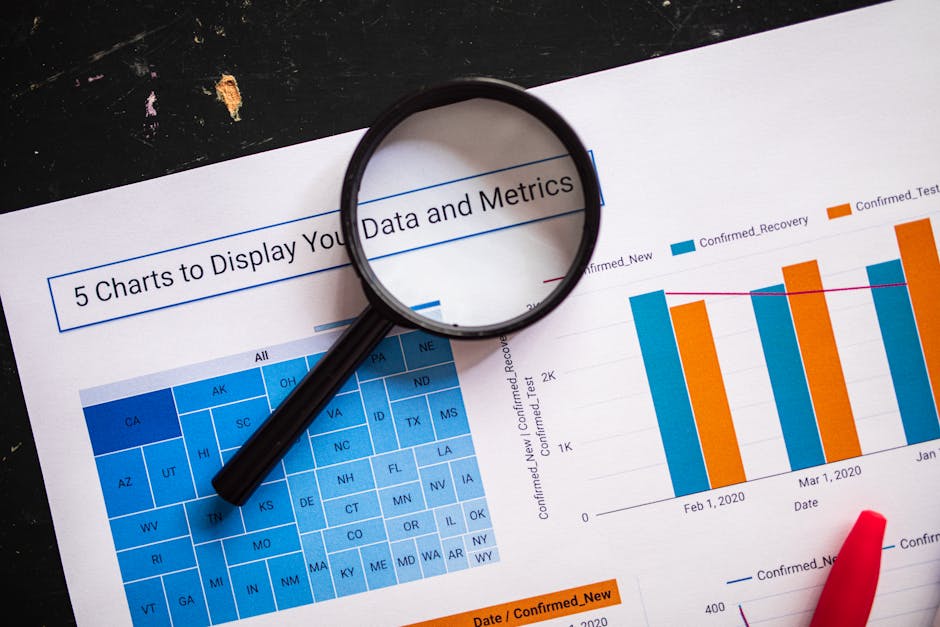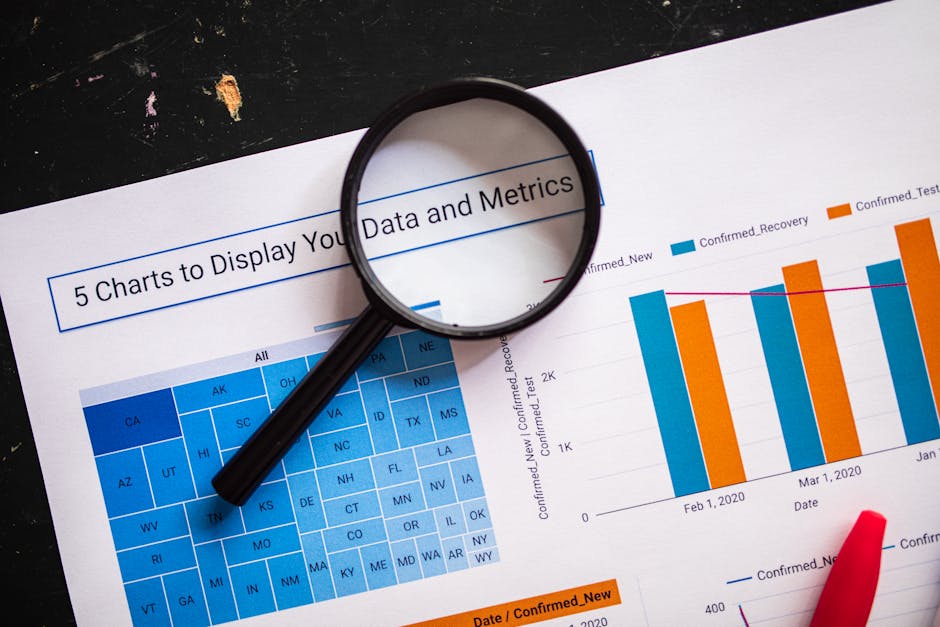Table of Contents
“Empower yourself with self-evaluation for better performance reviews.”
Introduction
Self-evaluation in performance reviews can offer several advantages for both employees and employers. By taking the time to reflect on their own performance, individuals can gain valuable insights into their strengths and weaknesses, set goals for improvement, and take ownership of their professional development. This process can also foster open communication between employees and managers, leading to more meaningful and productive performance discussions. Additionally, self-evaluation can help employees feel more engaged and motivated in their work, ultimately leading to increased job satisfaction and performance.
Improved Self-Awareness
Self-evaluation is a critical component of performance reviews in the workplace. It allows employees to reflect on their own performance, strengths, and areas for improvement. By engaging in self-evaluation, individuals can gain a deeper understanding of their own capabilities and how they contribute to the overall success of the organization. This process of self-reflection can lead to improved self-awareness, which is essential for personal and professional growth.
One of the key advantages of self-evaluation is that it provides employees with the opportunity to assess their own performance objectively. By taking a step back and evaluating their work from a different perspective, individuals can identify areas where they excel and areas where they may need to make improvements. This self-awareness is crucial for setting realistic goals and developing a plan for professional development.
Self-evaluation also allows employees to take ownership of their performance. When individuals are actively involved in assessing their own work, they are more likely to take responsibility for their actions and outcomes. This sense of ownership can lead to increased motivation and a greater sense of accountability. By recognizing their own strengths and weaknesses, employees can take proactive steps to address any areas of concern and make necessary improvements.
Furthermore, self-evaluation can help employees identify their own career goals and aspirations. By reflecting on their performance and achievements, individuals can gain a clearer understanding of where they want to go in their careers. This self-awareness can guide employees in setting meaningful and achievable goals that align with their personal values and professional aspirations. By taking the time to evaluate their own performance, individuals can create a roadmap for their own career development and advancement.
In addition, self-evaluation can lead to improved communication and collaboration within the workplace. When employees are actively engaged in assessing their own performance, they are better equipped to communicate their needs and expectations to their managers and colleagues. This open and honest dialogue can foster a culture of transparency and trust, leading to more effective teamwork and collaboration. By being self-aware and proactive in their own evaluation, employees can contribute to a positive and productive work environment.
Self-evaluation also provides employees with the opportunity to receive feedback from their managers and peers. By reflecting on their own performance and seeking input from others, individuals can gain valuable insights into how they are perceived by others. This feedback can help employees identify blind spots and areas for improvement that they may not have been aware of. By actively seeking feedback and incorporating it into their self-evaluation, individuals can make meaningful changes to their behavior and performance.
Overall, self-evaluation is a valuable tool for personal and professional growth. By engaging in self-reflection, individuals can gain a deeper understanding of their own capabilities, set realistic goals, and take ownership of their performance. This process of self-awareness can lead to improved communication, collaboration, and career development. By incorporating self-evaluation into performance reviews, organizations can empower their employees to take control of their own growth and development.
Goal Setting and Achievement
Performance reviews are a crucial aspect of professional development, providing employees with valuable feedback on their work and helping them set goals for improvement. One method that has gained popularity in recent years is self-evaluation, where employees assess their own performance before meeting with their supervisors. This process has several advantages that can benefit both employees and organizations.
One of the main advantages of self-evaluation is that it allows employees to take ownership of their performance. By reflecting on their work and identifying areas for improvement, employees can demonstrate their commitment to personal growth and development. This sense of ownership can lead to increased motivation and engagement, as employees feel more invested in their own success.
Self-evaluation also encourages employees to be more self-aware. By evaluating their own performance, employees can gain a better understanding of their strengths and weaknesses. This self-awareness can help employees set more realistic goals for improvement and make better decisions about their professional development.
In addition, self-evaluation can help employees prepare for their performance reviews. By taking the time to reflect on their work and identify specific examples of their accomplishments and challenges, employees can provide more detailed and meaningful feedback to their supervisors. This can lead to more productive discussions during the performance review meeting and help employees make a stronger case for any promotions or raises they may be seeking.
Self-evaluation can also help supervisors gain a better understanding of their employees’ perspectives. By reviewing their self-assessments before the performance review meeting, supervisors can gain insights into how employees perceive their own performance and what they believe are their strengths and weaknesses. This can help supervisors tailor their feedback to better meet the needs and expectations of their employees.
Furthermore, self-evaluation can help employees and supervisors align their expectations. By having employees assess their own performance first, supervisors can gain a better understanding of how employees view their own work and what they believe are their priorities for improvement. This can help supervisors provide more targeted feedback and set more realistic goals for employees, leading to more effective performance improvement.
Overall, self-evaluation can be a valuable tool for both employees and organizations. By encouraging employees to take ownership of their performance, be more self-aware, and prepare for performance reviews, self-evaluation can lead to more productive discussions, better alignment of expectations, and ultimately, improved performance. Organizations that incorporate self-evaluation into their performance review process can create a culture of continuous improvement and development, where employees are empowered to take control of their own professional growth.
Increased Motivation

Performance reviews are a crucial aspect of any organization’s operations, as they provide employees with valuable feedback on their work and help managers identify areas for improvement. One method that has gained popularity in recent years is self-evaluation, where employees are asked to assess their own performance before meeting with their supervisors. This approach has several advantages, one of which is increased motivation among employees.
When employees are given the opportunity to evaluate their own performance, they are more likely to take ownership of their work and strive for improvement. This sense of ownership can lead to increased motivation, as employees are more invested in their own success. Research has shown that when employees are actively involved in the evaluation process, they are more likely to set challenging goals for themselves and work towards achieving them.
Self-evaluation also allows employees to reflect on their strengths and weaknesses in a more objective manner. By taking the time to assess their own performance, employees can identify areas where they excel and areas where they need to improve. This self-awareness can be a powerful motivator, as employees are more likely to take action to address their weaknesses and build on their strengths.
Furthermore, self-evaluation can help employees feel more valued and respected by their supervisors. When employees are given the opportunity to provide input on their own performance, they feel that their opinions are being taken into consideration. This can lead to a more positive relationship between employees and their supervisors, as employees feel that their voices are being heard and their contributions are being recognized.
In addition, self-evaluation can help employees develop a growth mindset, where they see challenges as opportunities for learning and growth. By reflecting on their own performance and setting goals for improvement, employees are more likely to embrace new challenges and seek out opportunities for development. This can lead to increased job satisfaction and a greater sense of fulfillment in their work.
Overall, self-evaluation can be a powerful tool for increasing motivation among employees. By giving employees the opportunity to assess their own performance, organizations can empower their employees to take ownership of their work, identify areas for improvement, and develop a growth mindset. This can lead to increased job satisfaction, higher levels of engagement, and ultimately, improved performance across the organization.
In conclusion, self-evaluation is a valuable tool for enhancing performance reviews and increasing motivation among employees. By encouraging employees to assess their own performance, organizations can empower their employees to take ownership of their work, identify areas for improvement, and develop a growth mindset. This can lead to a more positive work environment, higher levels of engagement, and ultimately, improved performance across the organization.
Enhanced Communication Skills
Performance reviews are a common practice in many organizations, providing employees with feedback on their work performance and areas for improvement. While these reviews are typically conducted by managers or supervisors, self-evaluation can also play a valuable role in the process. Self-evaluation allows employees to reflect on their own performance, identify their strengths and weaknesses, and set goals for improvement. This article will explore the advantages of self-evaluation in performance reviews, with a focus on how it can enhance communication skills in the workplace.
One of the key benefits of self-evaluation is that it encourages employees to take ownership of their performance. By reflecting on their own work and identifying areas for improvement, employees become more engaged and motivated to make positive changes. This sense of ownership can lead to increased accountability and a greater commitment to achieving goals. When employees are actively involved in evaluating their own performance, they are more likely to take responsibility for their actions and strive for continuous improvement.
Self-evaluation also promotes self-awareness, as employees gain a better understanding of their strengths and weaknesses. This self-awareness can help employees set realistic goals for improvement and develop strategies to address areas of weakness. By taking the time to reflect on their own performance, employees can identify patterns of behavior or areas where they may need additional support. This increased self-awareness can lead to more effective communication with colleagues and supervisors, as employees are better able to articulate their needs and seek assistance when necessary.
In addition to promoting self-awareness, self-evaluation can also improve communication skills in the workplace. When employees are actively engaged in evaluating their own performance, they are more likely to communicate openly and honestly with their colleagues and supervisors. This can lead to more meaningful conversations about performance goals, expectations, and areas for improvement. By fostering a culture of open communication, self-evaluation can help build trust and collaboration among team members.
Self-evaluation can also help employees develop their critical thinking skills. By reflecting on their own performance and identifying areas for improvement, employees are able to analyze their work from a more objective perspective. This can help employees identify underlying issues or challenges that may be impacting their performance, and develop strategies to address these issues. By engaging in critical thinking during the self-evaluation process, employees can become more effective problem solvers and decision makers.
Overall, self-evaluation can play a valuable role in performance reviews by enhancing communication skills in the workplace. By encouraging employees to take ownership of their performance, promoting self-awareness, and fostering critical thinking, self-evaluation can help employees become more engaged, motivated, and effective in their roles. By incorporating self-evaluation into the performance review process, organizations can create a culture of continuous improvement and open communication that benefits both employees and the organization as a whole.
Personal Growth and Development
Performance reviews are a common practice in many organizations, providing employees with feedback on their work and helping them set goals for improvement. While these reviews are typically conducted by a manager or supervisor, self-evaluation can also play a valuable role in the process. Self-evaluation allows employees to reflect on their own performance, identify areas for growth, and take ownership of their professional development.
One of the key advantages of self-evaluation in performance reviews is that it encourages self-awareness. By taking the time to assess their own performance, employees can gain a better understanding of their strengths and weaknesses. This self-awareness can help employees set more realistic goals for improvement and make more informed decisions about their career development.
Self-evaluation also promotes accountability. When employees are asked to evaluate their own performance, they are more likely to take ownership of their actions and outcomes. This can lead to increased motivation and a greater sense of responsibility for their work. By holding themselves accountable, employees are more likely to take proactive steps to improve their performance and achieve their goals.
In addition, self-evaluation can help employees develop critical thinking skills. When employees are asked to assess their own performance, they are forced to think critically about their work and identify areas for improvement. This process can help employees develop a more analytical mindset and become better problem solvers. By engaging in self-evaluation, employees can learn to evaluate their own work objectively and make more informed decisions about how to improve.
Self-evaluation also fosters a culture of continuous improvement. By regularly assessing their own performance, employees can identify areas for growth and set goals for improvement. This can lead to a cycle of continuous learning and development, as employees strive to become better at their jobs and achieve their professional goals. By encouraging self-evaluation, organizations can create a culture that values growth and development, leading to higher levels of employee engagement and satisfaction.
Furthermore, self-evaluation can improve communication between employees and their managers. When employees are asked to evaluate their own performance, they are more likely to engage in open and honest conversations with their managers about their work. This can lead to more meaningful feedback and a better understanding of expectations on both sides. By fostering open communication through self-evaluation, organizations can build stronger relationships between employees and their managers, leading to a more productive and collaborative work environment.
Overall, self-evaluation can be a valuable tool in performance reviews, helping employees gain self-awareness, accountability, critical thinking skills, and a commitment to continuous improvement. By encouraging self-evaluation, organizations can empower employees to take ownership of their professional development and work towards achieving their goals. Self-evaluation can lead to more meaningful feedback, improved communication, and a culture of growth and development within the organization. By incorporating self-evaluation into performance reviews, organizations can create a more engaged and motivated workforce that is committed to achieving success.
Recognition of Strengths and Weaknesses
Performance reviews are a crucial aspect of professional development, providing employees with valuable feedback on their work performance. One method that has gained popularity in recent years is self-evaluation. This process involves employees assessing their own performance and providing feedback to their supervisors. While some may view self-evaluation as unnecessary or even intimidating, there are numerous advantages to incorporating this practice into performance reviews.
One of the primary benefits of self-evaluation is the opportunity for employees to recognize and acknowledge their strengths. By reflecting on their accomplishments and contributions, employees can gain a greater sense of self-awareness and confidence in their abilities. This self-awareness can be empowering, motivating employees to continue excelling in their roles and setting new goals for themselves.
Additionally, self-evaluation allows employees to identify areas for improvement. By honestly assessing their weaknesses and areas where they may have fallen short, employees can take proactive steps to address these issues and enhance their performance. This self-reflection can lead to personal growth and development, ultimately benefiting both the individual and the organization as a whole.
Furthermore, self-evaluation can foster a sense of ownership and accountability among employees. When individuals take responsibility for evaluating their own performance, they are more likely to be actively engaged in the review process and committed to making positive changes. This sense of ownership can lead to increased job satisfaction and a stronger sense of investment in the organization’s success.
Incorporating self-evaluation into performance reviews can also improve communication between employees and supervisors. By providing their own feedback, employees can open up a dialogue with their supervisors about their performance, goals, and areas for improvement. This two-way communication can lead to a more collaborative and constructive review process, ultimately benefiting both parties.
Moreover, self-evaluation can help to align employee goals with organizational objectives. By reflecting on their performance and setting goals for the future, employees can ensure that their efforts are in line with the organization’s mission and values. This alignment can lead to increased productivity, job satisfaction, and overall success for both the individual and the organization.
Overall, self-evaluation is a valuable tool for recognizing strengths, identifying weaknesses, fostering accountability, improving communication, and aligning goals with organizational objectives. By incorporating this practice into performance reviews, organizations can empower employees to take ownership of their development and contribute to the overall success of the organization. While self-evaluation may initially seem daunting, the benefits far outweigh any perceived challenges. Embracing self-evaluation as a regular practice can lead to a more engaged, motivated, and successful workforce.
Accountability and Responsibility
Performance reviews are a crucial aspect of any organization’s operations. They provide employees with feedback on their work, help identify areas for improvement, and set goals for future growth. One method that has gained popularity in recent years is self-evaluation. This process involves employees assessing their own performance before meeting with their supervisors for a formal review. While some may view self-evaluation as unnecessary or even counterproductive, there are several advantages to incorporating this practice into performance reviews.
One of the primary benefits of self-evaluation is increased accountability. When employees are given the opportunity to reflect on their own performance, they are more likely to take ownership of their successes and failures. This sense of accountability can lead to improved performance and a greater sense of responsibility for one’s work. By encouraging employees to evaluate themselves, organizations can foster a culture of accountability and empower individuals to take control of their own professional development.
Self-evaluation also promotes self-awareness. When employees are asked to assess their own performance, they are forced to reflect on their strengths and weaknesses. This process can help individuals identify areas for improvement and set goals for future growth. By encouraging employees to engage in self-reflection, organizations can help individuals develop a deeper understanding of their own capabilities and limitations. This increased self-awareness can lead to more effective goal-setting and a greater sense of personal fulfillment in the workplace.
In addition to promoting accountability and self-awareness, self-evaluation can also improve communication between employees and supervisors. When employees are given the opportunity to assess their own performance, they can provide valuable insights to their supervisors during the review process. This open dialogue can lead to more meaningful discussions about performance and help supervisors gain a better understanding of their employees’ perspectives. By incorporating self-evaluation into performance reviews, organizations can foster a culture of open communication and collaboration between employees and supervisors.
Furthermore, self-evaluation can help employees feel more engaged and invested in their work. When individuals are given the opportunity to reflect on their own performance and set goals for improvement, they are more likely to feel a sense of ownership over their work. This increased sense of ownership can lead to greater job satisfaction and motivation. By encouraging employees to take an active role in their own performance reviews, organizations can help individuals feel more engaged and invested in their work.
Overall, self-evaluation can be a valuable tool for organizations looking to improve their performance review processes. By promoting accountability, self-awareness, communication, and employee engagement, self-evaluation can help individuals take control of their own professional development and contribute to a more positive and productive work environment. Organizations that incorporate self-evaluation into their performance reviews can reap the benefits of increased employee satisfaction, improved communication, and enhanced performance.
Career Advancement Opportunities
Performance reviews are a common practice in many workplaces, providing employees with feedback on their work performance and areas for improvement. While these reviews are typically conducted by a manager or supervisor, self-evaluation can also play a valuable role in the process. Self-evaluation allows employees to reflect on their own performance, identify their strengths and weaknesses, and set goals for improvement. In this article, we will explore the advantages of self-evaluation in performance reviews and how it can benefit employees in their career advancement opportunities.
One of the key advantages of self-evaluation in performance reviews is that it allows employees to take ownership of their own development. By reflecting on their performance and identifying areas for improvement, employees can take proactive steps to address any shortcomings and work towards achieving their goals. This sense of ownership can lead to increased motivation and engagement, as employees feel empowered to take control of their own career development.
Self-evaluation also provides employees with the opportunity to showcase their achievements and contributions to the organization. By highlighting their successes and accomplishments, employees can demonstrate their value to the company and make a strong case for career advancement opportunities. This can be particularly beneficial during performance reviews, as managers may not always be aware of all the contributions that an employee has made.
Additionally, self-evaluation can help employees to set realistic and achievable goals for their professional development. By reflecting on their performance and identifying areas for improvement, employees can create a roadmap for their career advancement and track their progress over time. This can help employees to stay focused and motivated, as they work towards achieving their goals and advancing in their careers.
Self-evaluation can also lead to more meaningful and productive discussions during performance reviews. By taking the time to reflect on their own performance, employees can provide valuable insights and feedback to their managers. This can help to facilitate open and honest communication, as employees and managers work together to identify areas for improvement and set goals for the future.
Furthermore, self-evaluation can help employees to develop important skills such as self-awareness, critical thinking, and problem-solving. By reflecting on their performance and identifying areas for improvement, employees can develop a deeper understanding of their strengths and weaknesses, as well as the ability to identify opportunities for growth and development. These skills are essential for career advancement and can help employees to succeed in their professional lives.
In conclusion, self-evaluation can play a valuable role in performance reviews and provide employees with a range of benefits in their career advancement opportunities. By taking ownership of their own development, showcasing their achievements, setting realistic goals, facilitating meaningful discussions, and developing important skills, employees can position themselves for success and advancement in their careers. Self-evaluation is a powerful tool that can help employees to take control of their own professional development and achieve their goals.
Q&A
1. What are the advantages of self-evaluation in performance reviews?
Self-evaluation allows employees to reflect on their own performance and identify areas for improvement.
2. How does self-evaluation help in fostering self-awareness?
Self-evaluation helps employees become more self-aware of their strengths and weaknesses.
3. What role does self-evaluation play in promoting accountability?
Self-evaluation holds employees accountable for their own performance and goals.
4. How does self-evaluation contribute to employee development?
Self-evaluation provides employees with the opportunity to set goals and create a plan for their own development.
5. How does self-evaluation help in improving communication between employees and managers?
Self-evaluation encourages open communication between employees and managers about performance expectations and feedback.
6. How does self-evaluation contribute to a more positive work culture?
Self-evaluation promotes a culture of continuous improvement and personal responsibility within the organization.
7. How does self-evaluation help in identifying training and development needs?
Self-evaluation helps employees and managers identify areas where additional training or development may be needed.
8. How does self-evaluation contribute to overall performance improvement?
Self-evaluation allows employees to take ownership of their performance and work towards improving their skills and abilities.
Conclusion
Self-evaluation in performance reviews allows employees to reflect on their own strengths and weaknesses, take ownership of their development, and provide valuable insights to their managers. This process can lead to increased self-awareness, motivation, and growth within the organization. Overall, self-evaluation can be a powerful tool for improving performance and fostering a culture of continuous learning and development.




